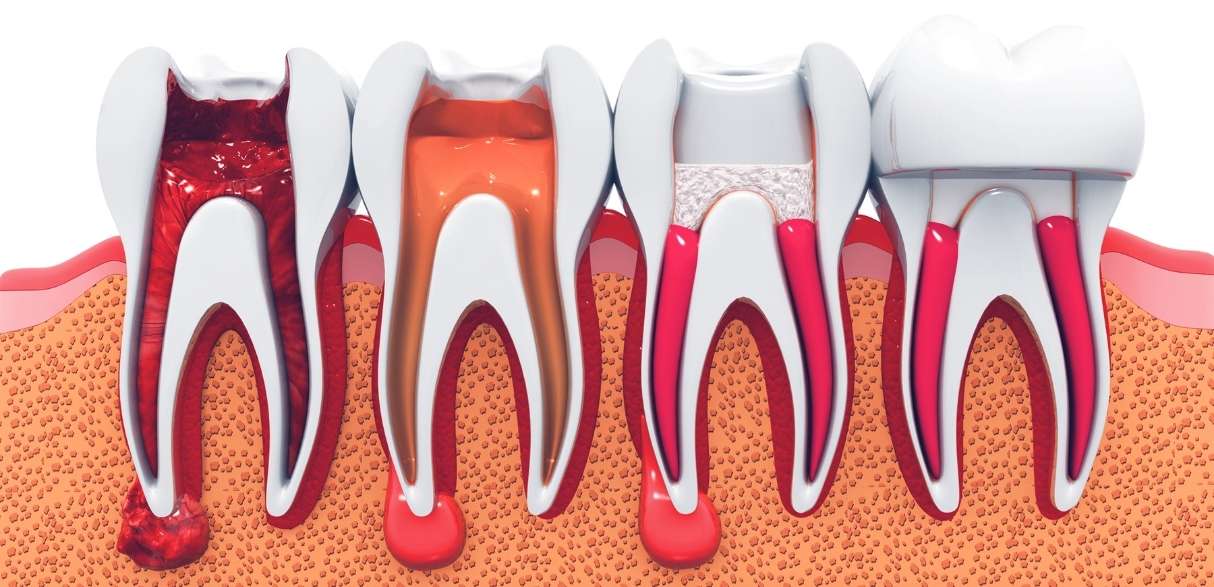
7 Things Diabetic Patients Should Know Before Root Canal Treatment

Dental care is vital for everyone, but it is particularly important for diabetic patients. Diabetes can negatively impact oral health, making routine and emergency dental care more complex. Procedures like root canal treatments, though common, require extra care and caution for diabetics.
Root canal treatment is an invasive procedure, and for diabetic patients, the risk of complications increases. Issues like slower healing, infections, and fluctuating blood sugar levels can complicate recovery. Understanding the connection between diabetes and dental health and taking proper precautions can ensure a safe treatment experience.
This blog will discuss the seven essential things every diabetic patient should know before undergoing a root canal treatment. It will help diabetics take control of their health, ensure the procedure goes smoothly, and minimize any risks.
The Link Between Diabetes and Oral Health
Diabetes affects more than just blood sugar levels—it can significantly impact oral health. Poorly managed diabetes can lead to a range of dental issues, increasing the need for regular checkups and specialized care.
One of the key issues faced by diabetic patients is a higher likelihood of gum disease. Elevated blood sugar levels can cause gums to become inflamed and bleed, leading to a higher risk of infections.
Another common issue is dry mouth. Saliva plays a crucial role in protecting the mouth against bacteria and food particles. When saliva production is reduced, diabetic patients are more prone to tooth decay and oral infections. This condition, known as xerostomia, is often an overlooked side effect of diabetes that can worsen dental health over time.
Diabetes also affects the body’s ability to heal. For patients who undergo invasive procedures, such as a root canal, slower healing times are common. This delayed healing can lead to complications like infections, swelling, or bleeding, which makes post-procedure care critical.
The high risk of infections in diabetic patients is a significant concern. Diabetes weakens the immune system, making it harder for the body to fight off infections. This means any dental infection or post-procedure complication could be more serious in a diabetic patient than in someone without the condition.
Given these factors, diabetic patients must take extra steps to maintain good oral health. Regular dental visits, maintaining good blood sugar levels, and following a consistent oral care routine can prevent many of these complications. It is also important for diabetic patients to be proactive and inform their dentists about their condition before undergoing treatments like root canals.
Major 7 Things Diabetic Patients Must Know Before Root Canal Treatment
1. Why Diabetic Patients Need Extra Care Before a Root Canal
Diabetic patients face a higher risk of complications during a root canal treatment. Poorly controlled blood sugar can lead to slower healing and a higher chance of infections. Diabetics may also experience fluctuating blood sugar levels due to stress, pain, or medications given during the procedure. These complications can affect the body’s ability to fight infections and heal properly.
It is essential for diabetic patients to ensure their blood sugar levels are well-managed before the procedure. Properly controlled diabetes helps reduce the risk of complications. Patients should work closely with their doctors to maintain stable blood sugar levels, both before and after the treatment.
2. Inform Your Dentist About Your Diabetes
Letting your dentist know about your diabetes is critical. Dentists need to be aware of your condition so they can plan the procedure accordingly. This includes understanding any medications you are taking to manage your diabetes, as well as any other health issues that may affect the procedure.
Diabetic patients may require additional precautions to prevent infections or ensure faster healing. A dentist aware of your condition can monitor for signs of slow healing, suggest appropriate medications, and advise on post-procedure care.
3. Manage Blood Sugar Levels Before the Procedure
Blood sugar control is key when preparing for a root canal. Diabetic patients should ensure that their blood sugar levels are stable before undergoing the procedure. If possible, schedule the procedure for a time when your blood sugar levels are generally well-controlled, such as in the morning.
Patients should also eat a balanced meal before the procedure to avoid blood sugar dips or spikes during the treatment. Working with your healthcare team can help ensure your blood sugar levels are managed effectively, reducing the risks during the root canal treatment.
4. Medications and Antibiotics
Diabetic patients may need antibiotics before or after the procedure to prevent infections. Since diabetes weakens the immune system, a course of antibiotics can help safeguard against potential infections caused by bacteria entering the tooth during a root canal.
However, medications used to control blood sugar may interact with antibiotics or pain medications prescribed after the root canal. Inform your dentist about any medications you’re taking to avoid potential drug interactions. Your dentist may also need to adjust the dosage or timing of medications based on your diabetic condition.
5. Post-Treatment Care and Healing
After a root canal, diabetic patients need to pay close attention to post-treatment care. Blood sugar levels can affect how quickly you heal, so it is essential to monitor your glucose levels closely. Follow your dentist’s post-care instructions carefully, and be vigilant about any signs of infection, such as redness, swelling, or pain.
Attend follow-up appointments to ensure that the tooth is healing properly. Poor healing in diabetic patients can lead to complications, so it is important to seek medical attention immediately if you suspect something is wrong.
6. Stress and Anxiety Management
Dental procedures can be stressful, and for diabetic patients, this stress can lead to fluctuations in blood sugar levels. Stress causes the body to release hormones like cortisol, which can raise blood sugar. To prevent this, consider relaxation techniques such as deep breathing or meditation before the procedure.
If necessary, discuss with your dentist the possibility of mild sedatives to help you relax. Reducing anxiety can help maintain stable blood sugar levels and make the procedure go more smoothly.
7. Reducing Risk: How Diabetics Can Prevent Oral Health Complications
The best way for diabetic patients to reduce risks during a root canal is through prevention. Maintaining good oral hygiene, including brushing and flossing regularly, can prevent infections that lead to root canals.
Additionally, controlling your diabetes through diet, exercise, and medication management plays a critical role in ensuring that your oral health remains in good condition.
Preventative care, including regular dental checkups, can help identify issues early on, allowing you to take action before complications arise.
What to Consider to Get the Right Dentist for Root Canal Treatment?
Choosing the right dentist is crucial, especially for diabetic patients. First, look for a dentist with experience treating patients with diabetes. These dentists will understand the specific challenges diabetic patients face and can take extra precautions during treatment.
A good dentist should also be open to collaboration with your healthcare team, ensuring that your diabetes management aligns with your dental treatment plan. They should be adept in handling complex cases, such as diabetic patients with slower healing times or increased infection risks.
Additionally, the dentist should be willing to answer your questions and discuss your concerns in detail before proceeding with the root canal.
Root canal treatment can be a safe procedure for diabetic patients if proper precautions are taken. Diabetics must inform their dentist about their condition, manage blood sugar levels carefully, and follow post-treatment care instructions closely. Choosing the right dentist, one who understands the complexities of diabetes, is also essential for a successful treatment.
By working closely with both your dentist and healthcare provider, you can reduce the risk of complications and ensure a smooth recovery. Prioritize both your dental and diabetic care, and you will enjoy better oral health outcomes.









